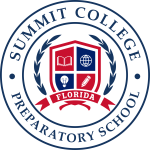History of Ideas: Philosophy, Religion & Society
History of Ideas: Philosophy & Society
World History - History of Ideas: Philosophy & Society examines the evolution of human thought and belief across time. The course investigates major philosophical movements, religious traditions, and social structures that shaped identity, governance, ethics, and justice in civilizations around the globe.
Students explore how key ideas emerged from historical circumstances, leading to intellectual revolutions and cultural transformation. As they engage with primary texts from thinkers such as Plato, Confucius, Rousseau, Marx, and Arendt, learners develop analytical tools for understanding how ideas influence society.
Furthermore, the course emphasizes intercultural literacy through comparative traditions. This perspective helps students connect abstract questions about freedom, morality, and knowledge to real-world challenges. By focusing on both continuity and change, students gain critical insights into human purpose and collective responsibility.
Grade Level: 12
Credits: 1
Delivery Format: Live Online (1:1 or Small Group)
Duration: Full Academic Year (194 instructional days)
Instructional Language: English
This interdisciplinary humanities course traces the development of philosophical, religious, and societal thought from ancient civilizations to the modern era. Through close reading, discussion, and structured debate, students examine foundational ideas that continue to shape public discourse and political theory.
Core Academic Content
Origins of philosophical reasoning and moral inquiry
Classical philosophy and comparative worldviews
Theology and religious reform across cultures
Enlightenment, revolution, and human rights theory
Modern ideologies: nationalism, socialism, existentialism
Global ethics, pluralism, and social transformation
Instructional Framework
Guided analysis of classical and modern texts
Comparative study of traditions and philosophies
Ethical reasoning through discussion-based learning
Tailored for multilingual and high-achieving learners
Structured pacing and documentation standards
Required Texts and Readings
Selections from Plato, Confucius, and the Bhagavad Gita
Torah, Bible, and Qur’an excerpts
Philosophers: Rousseau, Kant, Marx, Nietzsche, de Beauvoir
Primary texts and comparative case studies
Assessment Structure
Analytical essays and reflective writing on key ideas
Socratic seminars and philosophical debate
Synthesis papers on historical and ideological themes
Oral presentations exploring ethical dilemmas
Advanced project or extended thesis portfolio
